

By Ray Pride Pride@moviecitynews.com
Picturing “Illuminating The Shadows” Film Critic Conference, April 21-23
“Illuminating the Shadows: Film Criticism In Focus” was the subject of a conference April 21-23, Easter weekend, at the Block Museum of Art on the Northwestern University Evanston campus. Four panels were accompanied by four screenings, including Michael Phillips‘ choice of Errol Morris’ Tabloid; Dave Kehr‘s presentation of “the pre-Codiest of pre-Code” movies, Raoul Walsh’s 1933 three-cannon salute of a carefree sexual romp, Sailor’s Luck; and Karina Longworth with Athina Rachel Tsangari’s Attenberg (my notes here). There aren’t any images here of the panel about this history of film criticism in Chicago that I was part of, but the organizers promise MP3s of the four panels to come. My favorite moment may have come when a film professor type confronted the above panel with the question of why he should read any film criticism at all, what was its purpose, why should he care about anyone’s opinion but his own. To which the Boston Globe’s Wesley Morris essentially replied, “Read one of us.” (His elaboration of how a reviewer’s work can inform the intelligent reader was substantially more nuanced.) To the right of Morris, the Chicago Tribune’s Michael Phillips; The AV Club’s Scott Tobias and Ignatiy Vishnevetsky of “Ebert Presents” and Mubi.com. A 52-photo slideshow including these images and others is here; all could bear a bit more color correction to make the assembled seem ever-so-slightly more healthy.
At dinner, Vishnevetsky crayons his flowchart to connect John Carpenter and Brian De Palma.
Karina Longworth of LA Weekly.
The Block Museum of Art auditorium during a panel dubbed “Past Perfect–Critical Histories, Seminal Touchstones, and Rediscoveries.” To the left, moderator Nick Davis (Assistant Professor, English and Gender Studies, Northwestern).
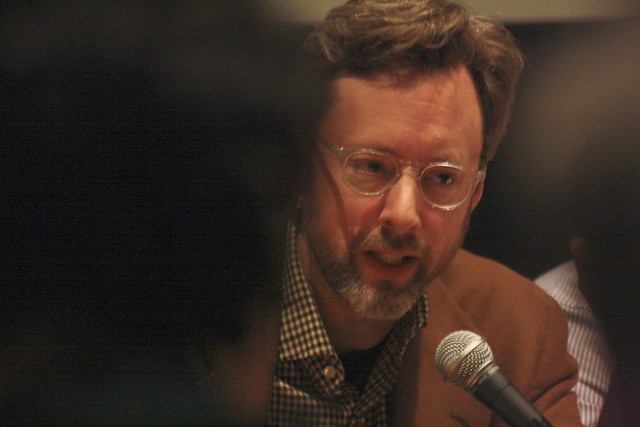
Michael J. Phillips.
Dave Kehr, Jonathan Rosenbaum.
Farran Nehme Smith, “The Self-Styled Siren“; critic-curator Gabe Klinger. FNS makes a point about being precise. I like to imagine she’s pressing the bell button outside a Lubitschian boudoir.
Michael Phillips.
Ben Sachs, Cine-File.
Karina Longworth.
Fred Camper, Dave Kehr, Farran Nehme Smith. (FNS is caught mid-blink; not in mid-nod.)
Vishnevetsky, Associate Program Director of the Film Society of Lincoln Center Scott Foundas. Not pictured: Time Out Chicago’s Hank Sartin, Freelance writer Andrea Gronvall, Christy LeMaster (contributor, Eight Forty-Eight, WBEZ 91.5 FM; Cine-File; and Director of the Nightingale Theatre); J. R. Jones (Staff Writer, Chicago Reader); Ben Kenigsberg (Film Editor, Time Out Chicago); Ray Pride (Film Critic, Newcity; News Editor, Moviecitynews.com); Ed M. Koziarski (Filmmaker; Writer, Chicago Reader, Reel Chicago, Time Out Chicago); Bill Stamets (Freelance writer, Chicago Sun-Times, Newcity).
After Day Two: Tobias, Vishnevetsky, Lemaster, Kenigsberg, Edward Crouse, Longworth, Phillips, Foundas, Kehr.
“Special support for this program is provided by the Academy of Motion Picture Arts and Sciences, Tribeca Flashpoint Media Arts Academy, the Rubens Family Foundation, and the Office of the Provost, Northwestern University.”









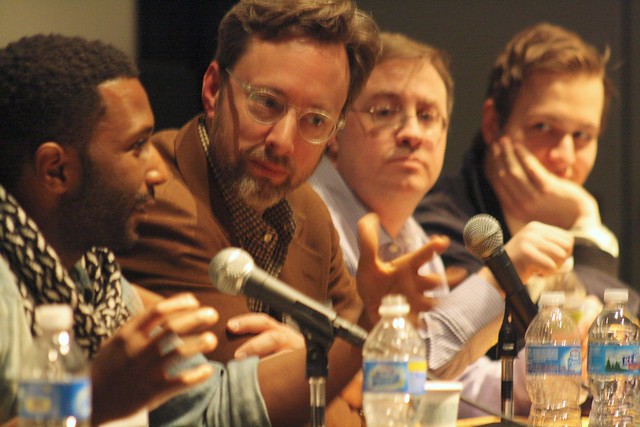
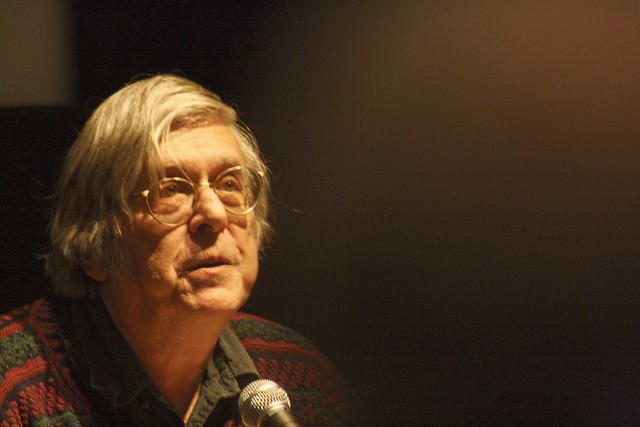

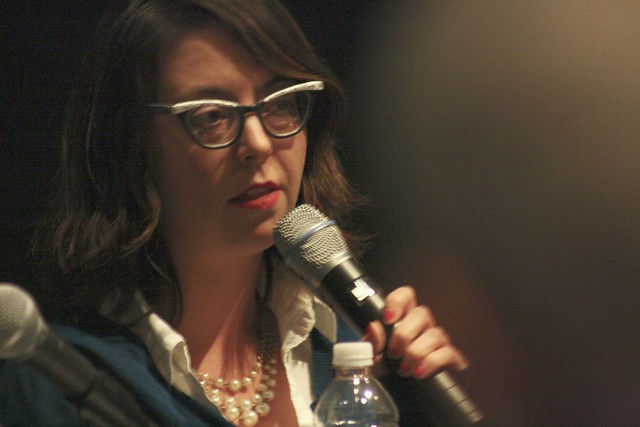
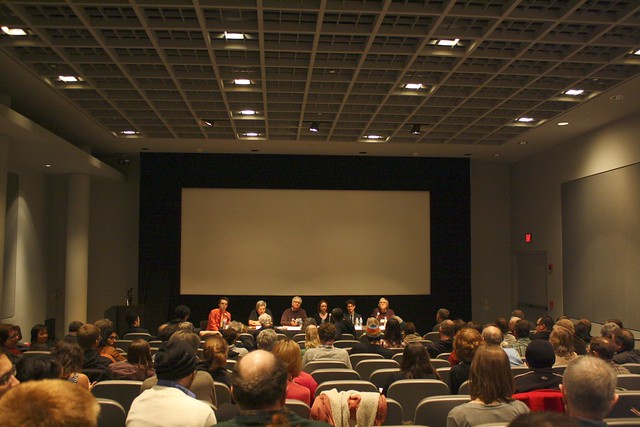
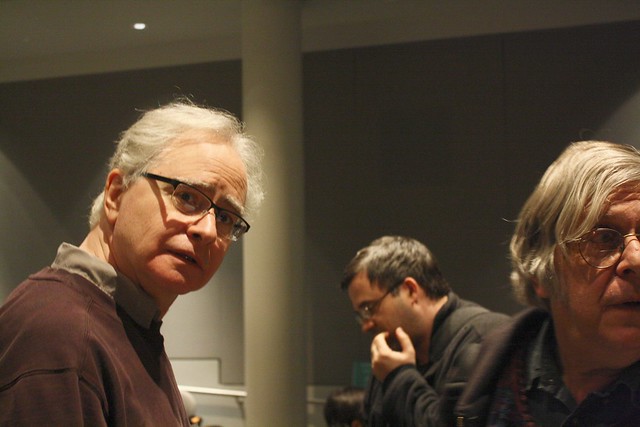
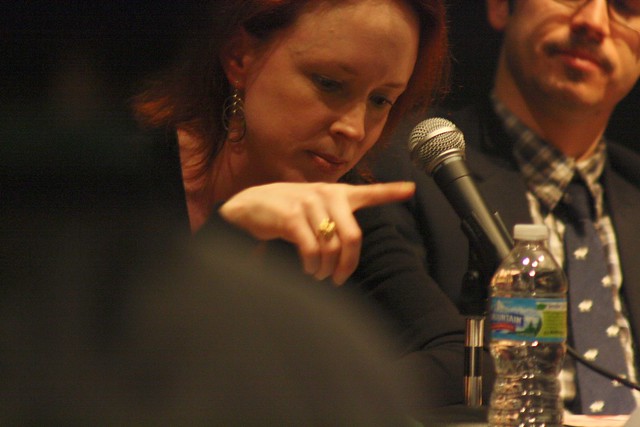
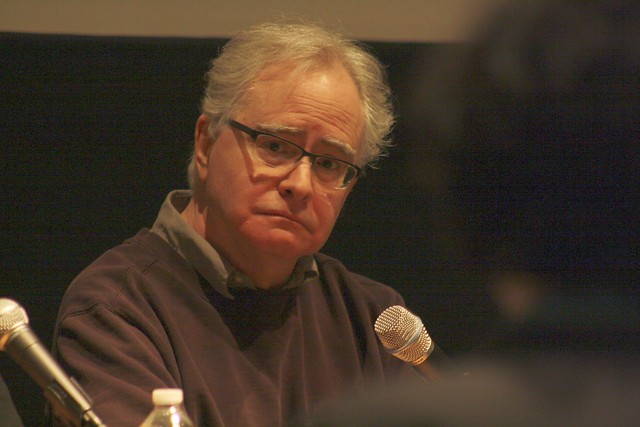
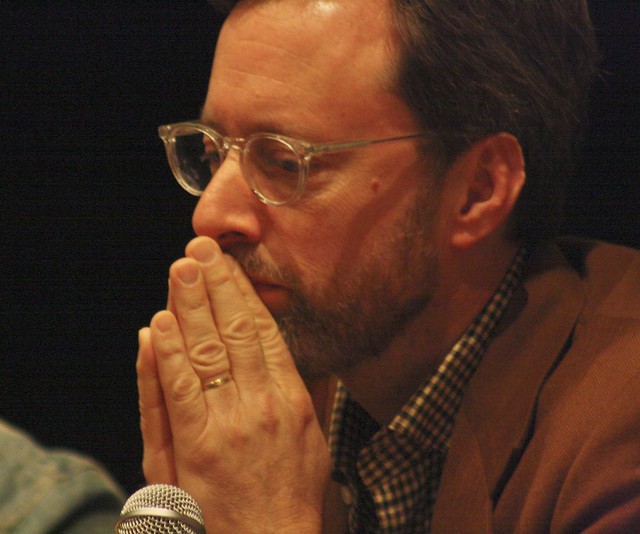
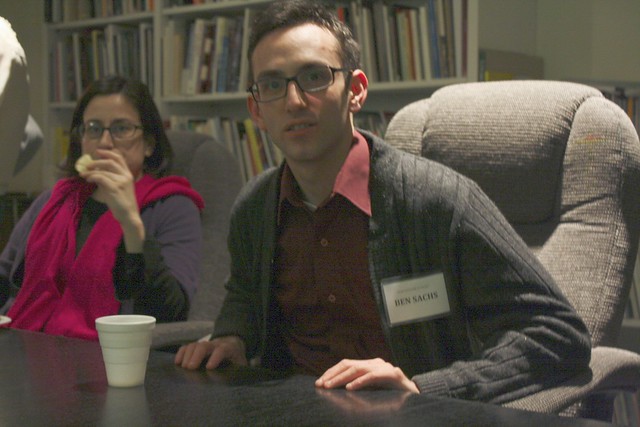
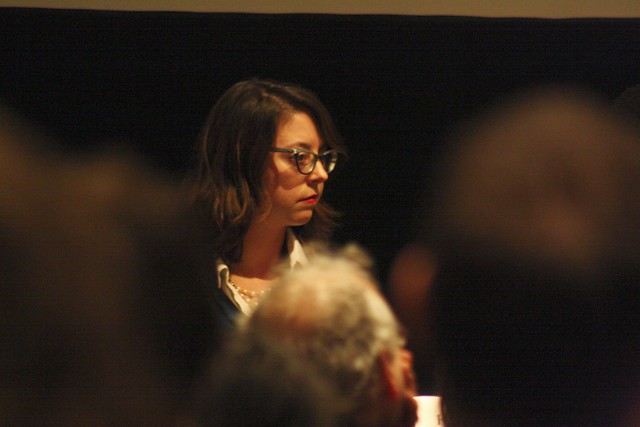
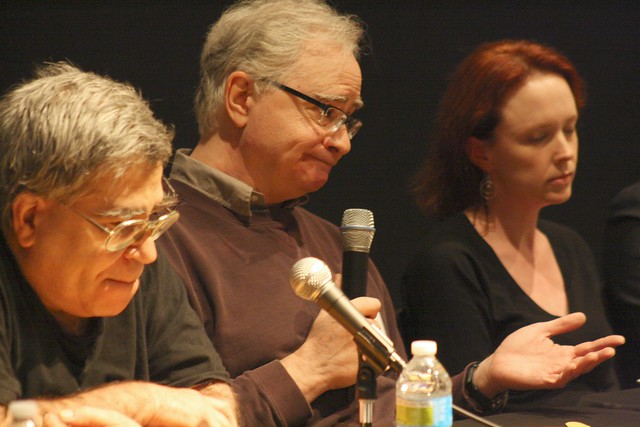
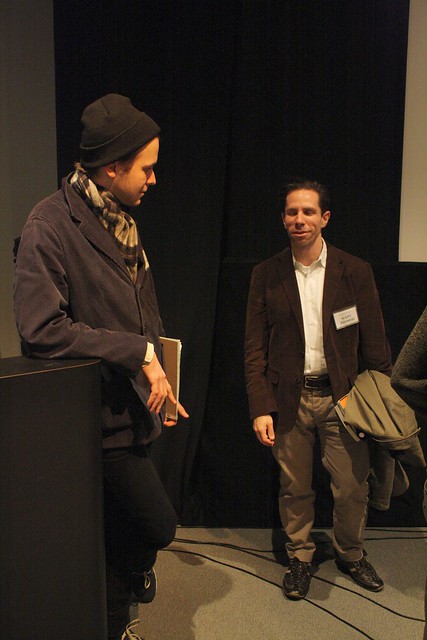
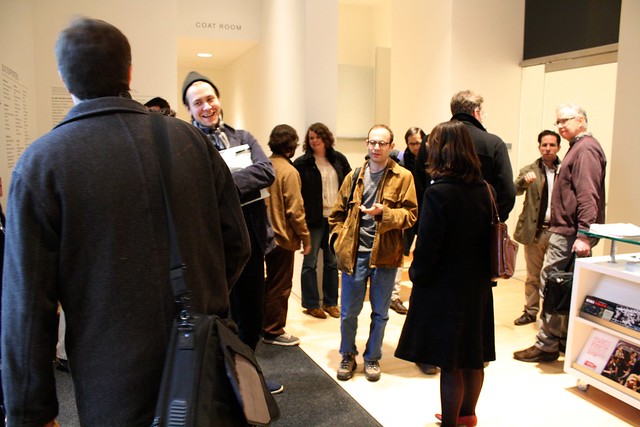






Any notes or feedback from what was said about Serge Daney and Manny Farber in the Past Perfect session on the 22nd?